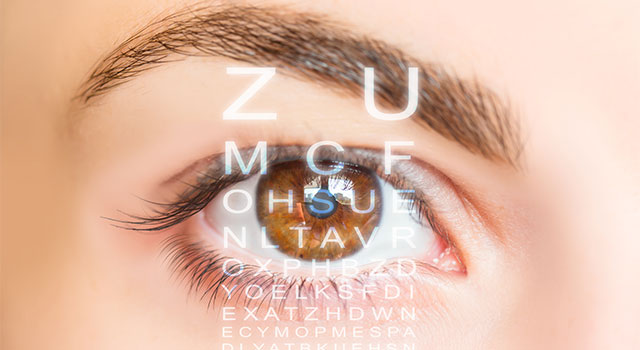Understanding the Various Eye Issues Treated by Specialized Eye Treatment Professionals
In the world of eye treatment, specialized professionals play a critical role in identifying and dealing with a vast range of eye conditions. As we begin on this expedition of the various eye conditions dealt with by specialized eye care specialists, it becomes apparent that the complex internet of eye wellness holds a myriad of fascinating insights waiting to be uncovered.
Typical Refractive Errors
Refractive errors are typical visual conditions triggered by a blemish in the eye's capacity to appropriately concentrate light, causing blurred vision. The most common sorts of refractive mistakes include myopia (nearsightedness), hyperopia (farsightedness), astigmatism, and presbyopia. Myopia happens when the eyeball is as well long or the cornea is too rounded, causing distant things to show up fuzzy. Hyperopia, on the various other hand, takes place when the eyeball is also brief or the cornea is also level, causing neighboring items being out of focus. Astigmatism is characterized by an irregularly shaped cornea, causing altered or blurred vision whatsoever distances. Presbyopia is an age-related problem where the lens sheds its versatility, making it tough to focus on close objects.
These refractive mistakes can be dealt with via different approaches, including spectacles, get in touch with lenses, or refractive surgical procedure. Eye care specialists play a vital function in detecting and handling refractive errors to assist people accomplish more clear vision and improve their lifestyle.
Age-Related Eye Problems
One of the most common age-related eye problems is age-related macular deterioration (AMD), an illness that triggers central vision loss and can make activities like reading and driving challenging. Cataracts, another usual problem amongst older individuals, cause clouding of the eye's all-natural lens, leading to blurred vision. Routine eye tests with specialized eye treatment experts are important for early discovery and management of these age-related eye conditions to maintain vision and maintain eye wellness as people expand older.
Vision-Threatening Illness
Vision-threatening illness encompass a variety of major eye conditions that have the potential to significantly influence a person's vision and total visual function. These diseases pose a threat of long-term vision loss if not promptly detected and dealt find here with by specialized eye care specialists. Some typical vision-threatening diseases include glaucoma, diabetic person retinopathy, age-related macular degeneration (AMD), and retinal detachment.
Glaucoma is a group of eye problems that damage the optic nerve, commonly due to high intraocular pressure, leading to outer vision loss and potential blindness if left unattended. AMD is a progressive condition influencing the macula, leading to central vision loss.
Very early discovery, regular eye tests, and prompt intervention are critical in managing vision-threatening illness to preserve eyesight and maintain high quality of life. Specialized eye treatment professionals play an essential role in diagnosing, treating, and taking care of these problems to stop permanent vision loss.

Corneal Disorders
Corneal conditions include a range of problems that influence the clear front component of the eye, known as the cornea. Therapy for corneal conditions varies depending on the specific condition yet might include drugs, call lenses, or in serious instances, corneal transplants. Routine eye examinations are essential for early detection and management of corneal disorders to preserve vision and eye health and wellness.
Neurological Eye Conditions
Neurological eye conditions include conditions that impact the connection between the eyes and the brain, influencing visual handling and total eye feature. These problems can materialize in various means, affecting vision, eye activities, and even the sychronisation between the eyes. One common neurological eye problem is optic neuritis, identified by swelling of the optic nerve bring about vision loss, shade desaturation, and pain with eye movement.
Another significant problem is nystagmus, where the eyes make repeated, unrestrained movements, affecting visual skill and deepness understanding. Additionally, problems like navigate to this website amblyopia, usually described as "lazy eye," arise from uncommon visual development in very early youth, leading to minimized vision in one eye.
Neurological eye conditions call for specialized care from professionals like neuro-ophthalmologists who have proficiency in both neurology and ophthalmology. Medical diagnosis commonly includes a comprehensive eye exam, imaging research studies, and collaboration with specialists to deal with the underlying neurological concerns impacting the visual system. Therapy strategies can check this site out include drug, vision therapy, or in extreme situations, medical interventions to take care of these complex problems efficiently.

Final Thought
To conclude, specialized eye care specialists deal with a wide variety of eye conditions, consisting of usual refractive errors, age-related eye problems, vision-threatening conditions, corneal disorders, and neurological eye problems - refractive surgeries in al. By comprehending these different conditions and seeking proper treatment from eye care professionals, people can maintain optimum eye health and wellness and vision. It is essential to prioritize normal eye assessments and follow advised treatment plans to preserve and shield one's vision for the future